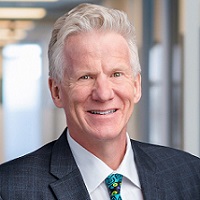 By Nick van Terheyden aka Dr Nick, Principal, ECG Management Consulting
By Nick van Terheyden aka Dr Nick, Principal, ECG Management Consulting
Twitter: @drnic1
Host of Healthcare Upside Down – #HCupsidedown
Jeff Goldsmith underwent surgery in 2015. While recovering at the hospital, he would periodically walk by the nurses’ station, where he observed a striking phenomenon: the nurses “were rushing out of the patient room to get back to the nurses’ station—not to interact with one another, but to type into the computer to try to catch up on the stream of documentation.”
That’s an important part of providers’ jobs, of course. Data from clinical encounters needs to be promptly and correctly entered into medical records for billing purposes and to monitor patients’ health. But how much is too much?
“I really needed more of their time,” Jeff says. “As a patient, I was suffering, and I wasn’t getting helped.”
Jeff doesn’t fault the nurses for fulfilling their administrative responsibilities, and he’s quick to acknowledge the demands on their time. What he does take issue with is a system that prioritizes data entry over patient care. “I think we’ve…burned out a lot of clinicians who went into the field to do something different, to actually help people—not to type,” he says.
Simplifying the administrative process is an increasingly pressing issue, because the move to a digital environment has vastly expanded the amount of data we can and do collect and store. And it will only expand further as we start to include the unexplored large data sets of genomics, proteomics, and the biome, to mention a few.
Jeff is the president of Health Futures and an active writer and lecturer on health policy, financing, and technology. He joins us on this episode of Healthcare Upside Down to talk about the need to “decomplexify” the healthcare administrative process and help providers focus on their relationships with their patients. Below are three takeaways from the podcast.
Episode NOW on Demand
So much documentation, so little time.
Healthcare providers are responsible for documenting an enormous amount of data to track their patients’ care and ensure they’ll be paid for their services. By some estimates, emerging doctors entering residency programs spend 70% or more of their time entering and tracking data.
Jeff thinks that’s too much. “We’re going to need to give clinicians back a day a week of the time that they are presently wasting typing stuff into the electronic record,” he says. “We need to simplify the payment process. We need to reduce the documentation requirements and demands on clinicians, physicians, nurses, and all the rest of them.”
Value-based care and administrative burden.
Has the push for value-based care resulted—ironically—in diminished value for patients and providers? It’s a notion that sounds deliberately provocative. But Jeff argues that the relentless emphasis on efficiency has taken a heavy toll on providers.
“We’ve created a shortage of physicians [with] all of the documentation requirements that we’ve heaped on them in the name of value-based care,” he says. “I think the value-based care movement has been a failure. And not because value is unimportant, not because encouraging people to do a better job isn’t important. But because we’ve gotten tangled up trying to measure it all and turn it into some kind of a pseudoscience, which it is not. This really ought to be about clinical leadership and values.”
Where digital health fits in.
Jeff lauds the efficacy of digital health, particularly its role during the pandemic. But in terms of its ongoing use, he emphasizes that technology should be part of a broader relationship between a patient and a care provider.
“What we ought to be paying for is relationships, not visits,” he says. “So in a relationship-based model, digital helps me a lot, because I can weed out the stuff that doesn’t require an in-person visit, let alone an emergency room visit or some type of acute intervention. I can use digital for triage and for trying to sort out where my time can best be spent.” He goes on to say that digital interactions shouldn’t be treated as individual interactions but as part of a bundle. “That bundle is about furthering the health objectives of the individual and using the time of the clinician in a thoughtful and intelligent way to do that.”
One thing technology should not do is make things more complex. “I sat on the board of a large healthcare IT company,” Jeff recalls. “And improving the user experience was not the number one agenda item—it was matching up with the competitors, [adding] features and functions, and making the product even more complicated than it was before. So I think the incentives to the vendors are wrong. I think a revolution in the user experience needs to happen.”
About the Show
The US spends more on healthcare per capita than any other country on the planet. So why don’t we have superior outcomes? Why haven’t the principles of capitalism prevailed? And why do American consumers have so much trouble accessing and paying for healthcare? Dive into these and other issues on Healthcare Upside/Down with ECG principal Dr. Nick van Terheyden and guest panelists as they discuss the upsides and downsides of healthcare in the US, and how to make the system work for everyone.
This article was originally published on the ECG Management Consulting blog and is republished here with permission.
